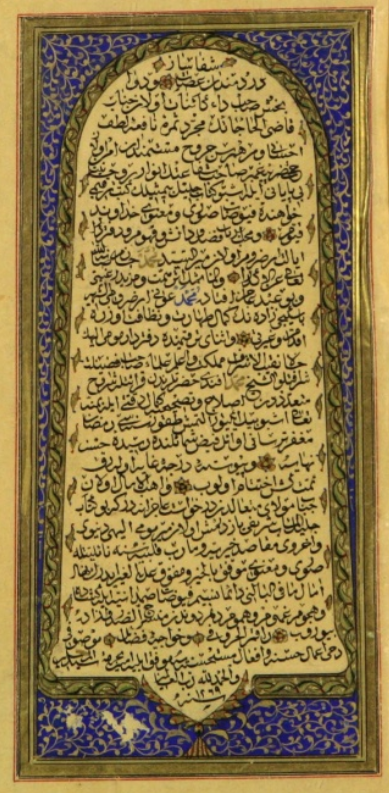Center for Religious Studies, CEU – 15:30
Pious Reading as Spiritual Practice:
A Biography of the Prophet Muḥammad from Twelfth-Century Iberia

al-Qāḍī ʿIyāḍ, Kitāb al-shifāʾ. University of Michigan Library, Isl. MS 209, p. 640, detail. MS arab. h = 21 cm, dated 1269/1852
Individual or communal reading of revelation and other sacred literature is a spiritual practice across faith traditions in literate societies. The Kitāb al-shifāʾ bi-taʿrīf huqūq al-Muṣṭafā (“The book of healing concerning the recognition of the true facts about the Chosen One”) has been a bestseller of devotional literature with Muslim audiences for centuries, all over the world. Its author ʿIyād b. Mūsā (1083–1149) was an important Maliki jurist who spent most of his professional life as a judge (qāḍī) in Ceuta. A loyal partisan of the Almoravid dynasty (1040–1147), Qāḍī ʿIyāḍ died in exile in Marrakesh, and became one of the saints of the city. Drawing on the evidence of manuscripts and printed versions, this lecture will use the Shifāʾ to explore different modes of pious reading in Muslim societies since the twelfth century.

This project has received funding from the European Union’s Horizon 2020 research and innovation programme under grant agreement No. 706611.

